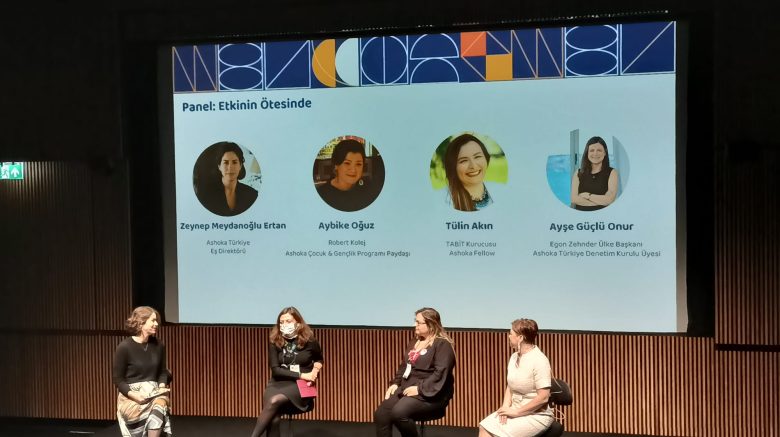Technology is everywhere in our lives, but our primary goal should be to use it for a better world. Technology can play a powerful role in addressing many issues such as environmental pollution, violence against women, and inequalities in education and health. Around us, there are social entrepreneurs who act with the belief that “technology exists primarily for good” and work to make life better.
Zeynep Meydanoğlu, Co-Director of Ashoka Turkey
“Digital technology companies and social entrepreneurship are two ecosystems that complement and feed each other around innovation and transformation, yet they can diverge when it comes to the well-being and equality of everyone.
Today, many of us access our basic needs—such as education, health, and food—through internet technologies. Yet the same internet and technology can manipulate voters through algorithms in the U.S. presidential elections or slow down or cut connections to control anti-government protests in various countries. In the global Ashoka Network, especially since 2010, we have observed social entrepreneurs focusing on the technology sector, establishing different systems to protect the integrity of digital information and the rights of everyone who interacts with it.”
The Goal: Serving Everyone’s Well-Being
“Some of the world’s leading social entrepreneurs are working to ensure that powerful digital technologies shaping our world serve everyone’s well-being—creating ‘Good Tech.’ Solutions that use technology for social impact—‘Tech for Good’—have been on the rise over the last twenty years. These include providing educational access for disadvantaged youth, agricultural advice for farmers in remote villages, and online acceleration programs for new entrepreneurs.
Among the social entrepreneurs emerging during this period, who have shaped our work, shopping, and behaviors worldwide, are Caseyton, founder of Couchsurfing in the U.S., and Tülin Akın, founder of TABİT in Turkey. In later years, hundreds of agri-tech initiatives following TABİT and companies inspired by Airbnb and Couchsurfing brought these ideas into the private sector.”

